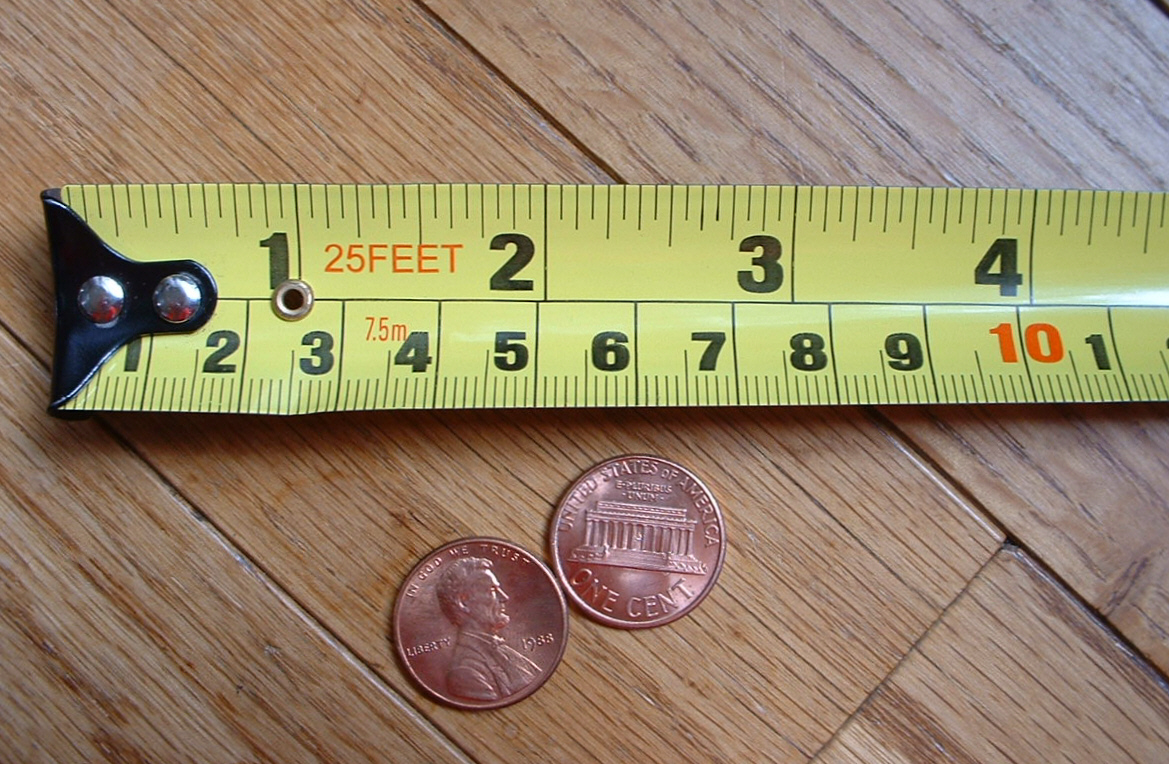In this article, we will learn about the various units of measurement available for the measurement of a physical quantity.
Let’s first start with the definition of measurement in physics.
What is measurement?
Measurement is a process of computing the amount of an unknown physical quantity by using a standard known quantity. For example, if we want to measure the length of a book, we use a scale.
Here,
- length of the book is an unknown physical quantity
- scale is the known standard quantity
The use of standard quantity for measurement is crucial in modern days because in earlier days people used their body parts like hands and palms to perform measurements. However, the body parts of every individual are different which causes the wrong outcomes during the measurement.

Measurements of physical quantities result in a numerical value and a reference standard of measurement. For example, suppose we measure the length of the book as 22 cm. Here,
- 22 is the numerical value called magnitude
- cm is the reference standard known as the unit of measurement.
Unit of measurement in physics
As mentioned earlier, units of measurement provide a reference standard to identify the measurement of a physical quantity.
They provide specific meaning to the magnitude of a substance. For example, if we say that the volume of the book is 32, we won’t have actual meaning about it. It’s because the volume could be 32 mm3 or 32 cm3 or 32 m3.
However, if we use units like cm3, we get the actual meaning that the volume of the book is 32 cm3.
Different types of units of measurement
In physics, we can divide the measurement units into 3 major types:
1. Fundamental Units
These are the units used to measure fundamental quantities. For example, kilogram for mass, meter for length, second for time, etc.
Fundamental units can express themselves without the assistance of any other units. For example, Kilogram (kg) is a fundamental unit because it is independently expressed and cannot be broken down into multiple units.
2. Derived Units
These are the measurement units of derived quantities. For example, newton for force, joule for energy, watt for power, etc.
Derived units cannot be expressed in the absence of fundamental units. For example, Newton (N) is a derived unit because it cannot be expressed in the absence of the fundamental unit (meter) and we can break it down into multiple units (Newton equal to kg m / s2 ).
3. Supplementary Units
These are the units combined with fundamental units to form derived units. For example, radians (unit of plane angle) and steradian (unit of solid angle).
Systems of Measurement Units
There are 4 systems of standard units used in the world to measure a physical quantity:
1. CGS System
In this system, we use units centimeters, grams, and seconds to measure the length, mass, and time respectively. Hence, the name CGS (Centimeter, Gram, Second).
| Physical Quantity | CGS Measurement Unit |
|---|---|
| Length | centimeter (cm) |
| Mass | gram (g) |
| Time | second (s) |
2. FPS System of Unit
In this system, we measure the length in the foot, mass in pounds, and time in seconds. Hence, the name FPS (Foot, Pound, Second).
| Physical Quantity | FPS System |
|---|---|
| Length | foot (ft) |
| Mass | pound (lb) |
| Time | second (s) |
3. MKS System
In this system, we measure the physical quantities length, mass, and time in meters, kilograms, and seconds, respectively. Hence, the name MKS (Mass, Kilogram, Second).
| Physical Quantity | MKS System |
|---|---|
| Length | meter (m) |
| Mass | kilogram (kg) |
| Time | second (s) |
4. SI Unit of Measurement
Before 1960, there was inconsistency in measurement units because different countries were using different units of measurement. In the US, pound metrics are used commonly to measure the mass. But, in India, the kilogram is used.
To resolve these differences, the Internal System of units (known as SI Units) was introduced in 1960. This standardizes the units of measurement all around the world.
The SI unit system provides a standard unit for 7 fundamental quantities and 2 supplementary quantities.
| Fundamental Quantities | SI Unit | Symbol |
|---|---|---|
| Length | Meter | m |
| Mass | Kilogram | kg |
| Time | Second | s |
| Current | Ampere | A |
| Amount of Substance | Mole | mol |
| Temperature | Kelvin | K |
| Luminous Intensity | Candela | Cd |
Units of supplementary quantities:
- Plane Angle – Radian (Rad)
- Solid Angle – Steradian (Sr.)
Units of Measurement of Various Physical Quantities
Below you can find the reference table for measurement units of various physical quantities that we use on a regular basis:
| Physical Quantities | Measurement Unit |
|---|---|
| Area | m2 |
| Volume | m3 |
| Density | kg m-3 |
| Velocity | m s-1 |
| Acceleration | m s-2 |
| Momentum | kg m s-1 |
| Force | Newton (N), kg m s-2 |
| Pressure | Pascal (Pa), kg m-1 s-2 |
| Work | Joule (J), kg m2 s-2 |
| Energy | J, kg m2 s-2 |
| Power | Watt (W), kg m2 s-3 |
| Angle | Radian (rad) |
| Torque | N m |
| Frequency | Hz (s-1) |
| Impulse | N s |
| Gravitational Constant | N m2 kg-2 |
| Surface Tension | N m-1 |
| Angular Momentum | kg m2 s-1 |
| Moment of Inertia | kg m2 |
Related Article: Dimensional Equation and Formula